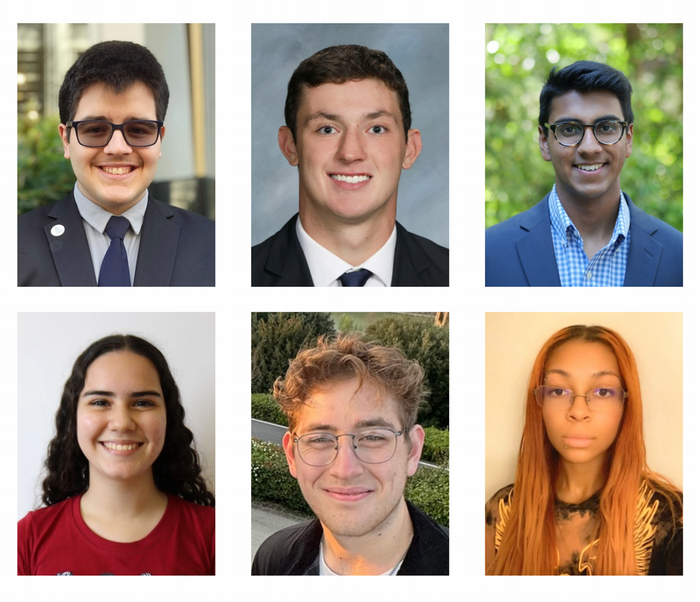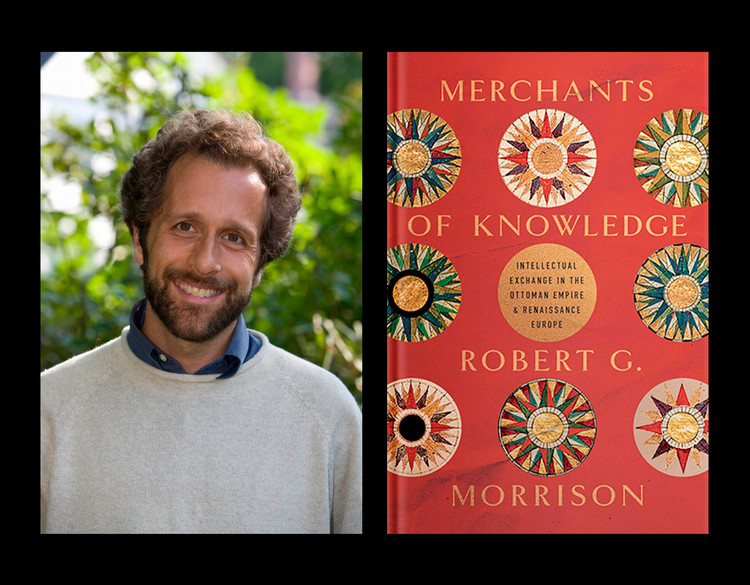Student Ambassadors Recruited as Part of the Hastings Initiative for AI and Humanity
By Tom PorterThe pervasive nature of generative artificial intelligence really came home to senior Anastazia Stallworth when she started applying for jobs. “As an econ major considering a career in financial services, I was struck by how many employers in that sector are using AI tools like hirevue to recruit.”
On top of this, she added, AI is playing an increasingly important role in her chosen field of risk management. These factors helped persuade Stallworth to apply for the role of student ambassador for the Hastings Initiative.
“It seems like a good opportunity to build important skills, as well as give back to my fellow students and help educate them on the subject.” Stallworth, who is majoring in Asian studies as well as economics, is one of six students recently recruited by College to help promote the Hastings Initiative for AI and Humanity.

The initiative was launched earlier this year, thanks to a $50 million gift from Netflix cofounder Reed Hastings ’83, with the aim of ensuring that students graduate well prepared to lead in a world reshaped by AI.
The initiative’s core principles derive from Hastings’s wish that his gift will “empower students and faculty to critically examine, thoughtfully utilize, and ethically shape AI’s trajectory.”
As part of the effort, new faculty and staff are being hired, existing faculty are getting support to incorporate AI into their teaching and research, and workshops, symposia, and other conversations are being brought to campus to help students engage with AI and its implications. The hiring of a cohort of student ambassadors, who will each receive a stipend, is a key part of the effort. “The Hastings team is thrilled to be joined by these six excellent students,” said Postdoctoral Associate in AI and Humanity Collin Lucken, who will be supervising them.

As campus representatives of the Hastings Initiative, he explained, the ambassadors serve as peer educators and campus researchers and play an active role in shaping how students engage with AI at Bowdoin. “The ambassadors meet monthly with the Hastings team to share feedback and ensure that student perspectives remain central to the initiative,” said Lucken, whose postdoctoral position was created as a result of the Hastings Initiative.
“Furthermore,” he added, “we encourage anyone in the Bowdoin community to reach out and collaborate with us on anything AI-related, and we hope the program continues to serve as a place for Bowdoin students to gain hands-on experience with these exciting emerging technologies.”
In addition to Stallworth, there are five other students assuming the role of Hastings Initiative ambassadors:
Neuroscience and music major Mauricio Cuba Almeida ’27 said he decided to be an ambassador to bring more awareness to the ramifications of AI, good and bad. “I've learned that AI is a double-edged sword, and I hope I can enable peers who are strongly for or against AI to approach the issue more broadly. What I've come to realize so far is that people have strong, diverse opinions on AI usage.”
Joe Gaetano ’27 is majoring in economics and digital and computational studies. “As a student ambassador, I’ve been working closely with faculty to explore how AI can be used effectively in the classroom,” he said. “So far, I have collaborated with different professors to test AI tools and helped introduce them to students. Looking ahead, I plan to learn more about how to best harness AI as a force for good.”
“I chose to become a Hastings ambassador because I want to promote the student voice in shaping the trajectory of the Initiative,” said Prathit Kurup ’26. “I am currently helping to conduct research about AI uses on campus, and advising students and faculty on AI-related projects,” added the computer science and math major.
In the spring of 2024, senior classmates and fellow Hastings ambassadors Prathit Kurup and Andrew Mott cofounded the Bowdoin AI Ethics discussion group.
“Seeing the turnaround from having to explain to people why we needed that club to people seeking us out to talk about AI has been great,” said Mott, “because now we're able to bring even more people into the discussions. The more people discussing AI, the better!”
Like all the student ambassadors, Ana Lopes ’28 wants to gain a deeper appreciation of the role of AI on campus. “I believe this role will help me understand the students' perspectives on the subject and the technical aspects involved in developing AI systems at Bowdoin,” said the computer science and neuroscience major. “Currently, I am reading a paper with Collin [Lucken] on the science of consciousness and artificial intelligence and studying open-source tools like NanoChat. I am really excited about this opportunity and interested to understand more about the role of a liberal arts education in AI development,” she added.
“The predominant reaction to generative AI a couple years ago was, ‘Okay... and?” observed English major Andrew Mott ’26. “But now that it's exerted its influence on campus, the workplace, and the world, people are looking for places to discuss and learn about genAI,” he said. “AI fascinates me, and I see this position as a chance to communicate with the students and faculty about what they need to know in order to decide where genAI fits into their visions for the common good."
Related news: The Hastings team recently announced the creation of another new resource for the Bowdoin community. The Environmental Impact Hub examines the often-overlooked environmental costs of generative AI models, from mining and manufacturing to energy and water usage.
Explore this and other AI-related educational materials created and curated by initiative members on the Hastings Initiative Resources page.



